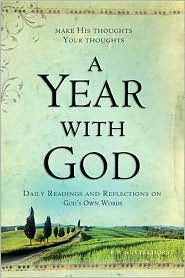THERE'S a difference between a piece of journalism that unavoidably provokes and one that is merely provocative. So which were the cartoon caricatures of Muhammad published in European newspapers from Bulgaria to Madrid this week?
The cartoons, which really are rather mild little doodles, first were published in a Danish newspaper last fall. Outraged Muslims in the Persian Gulf states launched a boycott of Danish goods that lead the government in Copenhagen to express regret for the offense, but to defend the paper's right to publish. By this week, the Danes were facing not only violent protests in the Islamic streets but also mounting demands from governments in the Mideast and elsewhere that they apologize and do something to the paper.
By week's end, papers and magazines across Europe had republished some or all of the cartoons in a gesture of solidarity with their Danish colleagues and in defense of their refusal to be intimidated out of free expression. Muslim outrage mounted. Palestinian gunmen surrounded the European Union mission in Gaza and others threatened to kidnap Westerners in reprisal. Violence spread and Western diplomats including Kofi Annan and the British foreign secretary began falling all over themselves to apologize for their news media's insensitivity.
All this would be slightly more edifying if it didn't reflect the destructive and dangerous double standard that the Western nations routinely observe when it comes to the government-controlled media in Islamic states. There the media is routinely rife with the vilest sort of hate directed at Jews and, less often, Christians. The "Protocols of the Elders of Zion" remain widely available in countries where nothing is published without government permission, and quotations from that infamous forgery are a staple of commentaries published across the Middle East. In recent years, government-owned television stations in Egypt and Syria have broadcast dramas that repeat the blood libel.
Where were the united and implacable Western demands for apologies?
If you want to see the continuing consequences of this double standard, consider these reactions to this week's events as reported Friday by the Associated Press: In Gaza City, Palestinian terrorists tossed a bomb into the French cultural center. Ismail Hassan, a 37-year-old tailor marching in an anti-European protest there, said, "Whoever defames our prophet should be executed."
Meanwhile, the imam who preached the Friday sermon in Gaza's Omari Mosque told 9,000 worshippers that the cartoonists who executed the caricatures should be beheaded.
In the remainder of the article, he makes the argument that the reaction in the Moslem world is a consequence of philosophical/theological presuppositions that are radically different from what exists in Judaism and Christianity:
Whatever the religious sensitivities involved, reactions such as these may strike you as threateningly — even viciously — irrational. That's because they are, and there's a reason.
Back in the High Middle Ages, the three great monotheistic religions — Judaism, Christianity and Islam — reached one of those fundamental forks in the historical road. For centuries, a series of Islamic scholars had preserved the works of Aristotle that one day would lay the foundations for the secular logic and science that have made the modern world possible. Their "rediscovery" by medieval scholars provoked a crisis. They recognized that reason was a powerful tool, but were fearful that using it would undermine faith, which was the basis for authority in all three communities.
What to do — or, more precisely, how to think?
Three intellectual giants rose to the challenge. Two of them — the philosopher and jurist Abu al-Walid Ibn Rushd, known to the West as Averroes, and the great rabbi and physician Moses Maimonides — actually were contemporaries, both born in the Spanish city of Cordova. Tradition has it they even met and befriended each other while on the run from the Almohads, Islamic fundamentalists from the Maghreb, who had captured Andalusia and destroyed its storied culture of tolerance. The third was Thomas Aquinas — of whom his admiring coreligionists one day would say, "He led reason captive into the house of faith." Recall that this was an age in which the literate West, not unlike today's Islamists, still regarded theology as "the queen of the sciences."
Averroes' exposition of Aristotle was so widely admired and influential that when Aquinas took it up a century or so later at the University of Paris he referred to Aristotle simply as "the philosopher" and to Averroes as "the commentator." But while Maimonides and, later, Aquinas — who also read and admired the philosopher rabbi — held that there exists a single truth and that faith, properly understood, never can conflict with reason, Averroes took the other fork. He held that there were two truths — that of revelation and that of the natural world. There was no need to reconcile them because they were separate and distinct.
It was a form of intellectual suicide and cut off much of the Islamic world from the centuries of scientific and political progress that followed.
As the events of the last week have demonstrated pretty forcefully, all this is more than an historical curiosity, because the globalization of markets and peoples has brought the rest of the modern world to Islam whether Muslims want it or not. One of the minor paradoxes at work here is that long before the imams' fiery sermons sent people into the streets this week, they'd been whipped into a frenzy by quintessentially modern creations — cellphone text messages and the Internet. Islamic societies are enthusiastic consumers of nearly everything the modern West produces — except such indispensable values as separation of church and state and freedom of expression.
Read the entire article: Drawn Into a Religious Conflict, by Tim Rutten (Saturday, February 4, 2006) Los Angeles Times.






1 comment:
If the success of the Moslem Brotherhood in the Egyptian elections, the election and wide Iranian support for the radical Islamic hardliner Ahmadinejad, the election of Shiite and Sunni clerics in Iraq and the landslide victory of Hamas is not enough to convince the west that the Moslems are stuck in medieval thought. Perhaps this latest fray over Mohamed’s image will.
Liberal Christians have a hard enough time trying to convince our conservative fundamentalist brethren that the total separation of church and state is a good thing. Equally difficult is getting them to understand that they shouldn’t be swayed to vote in accordance to their preacher’s political and religious opinions. If a substantial number of good red blooded Americans have a hard time understanding these principles, what in the world makes them think that the Moslems are going to embrace them? This is especially true given the currant attitudes and recent history of the Moslem Arab masses.
The west should not underestimate the power of the clergy or the influence of the fatwa. Realistically and unfortunately the number of clerics friendly to the west and to Israel are far and few between. They are certainly not enough to change Moslem popular opinion. We should not be naive, if the Moslem world could vote; the Middle East would be a caldron seething with Islamic fundamentalist leadership and poor Israel would be stuck right in the middle of it.
Post a Comment